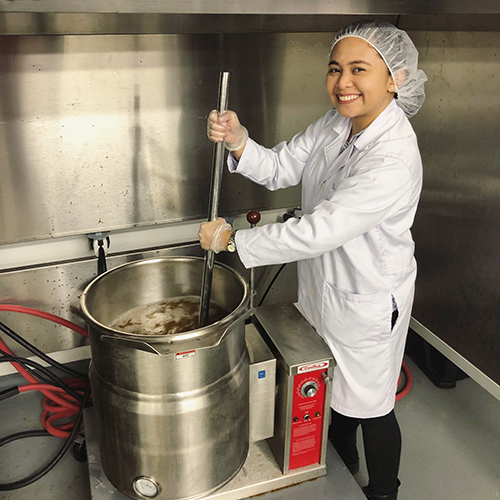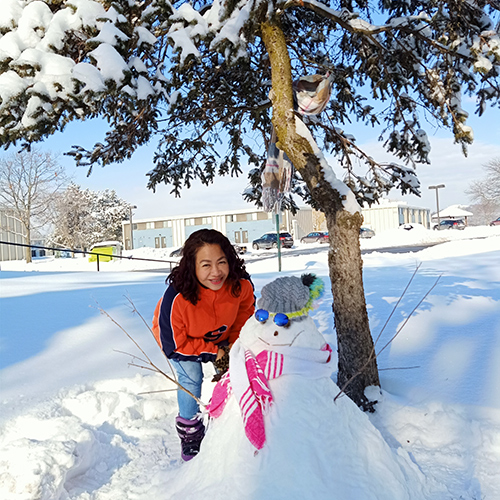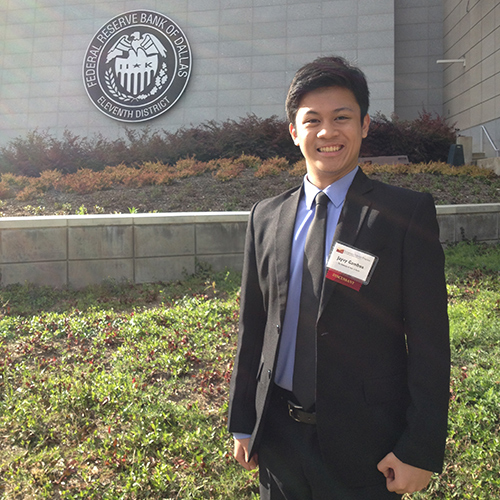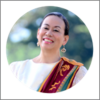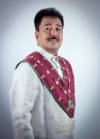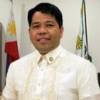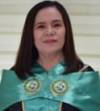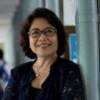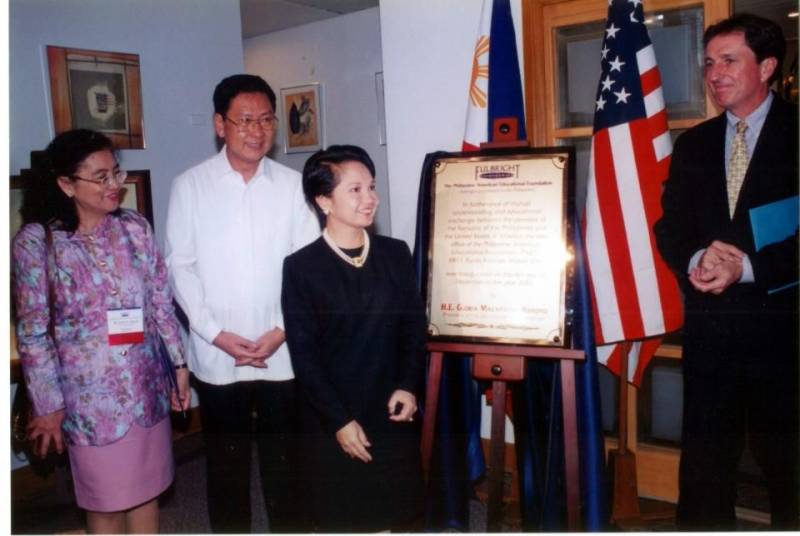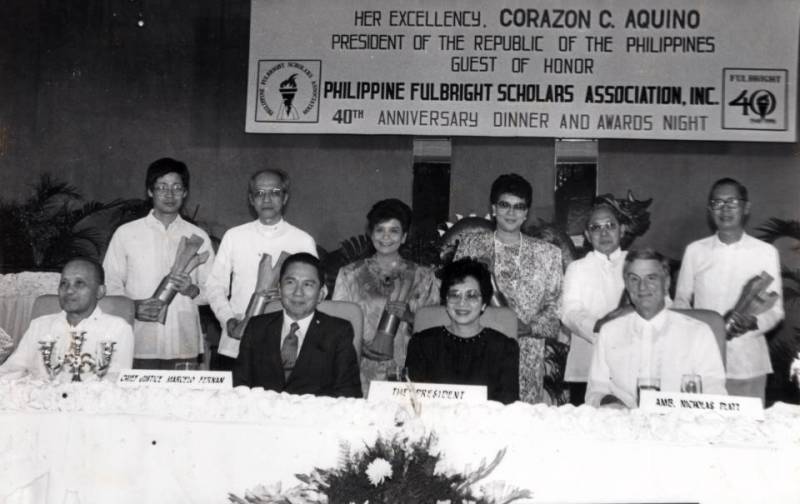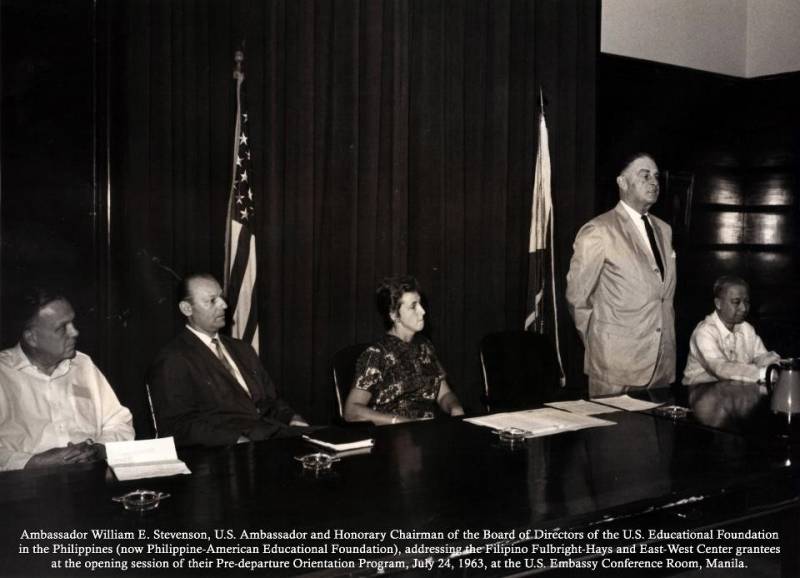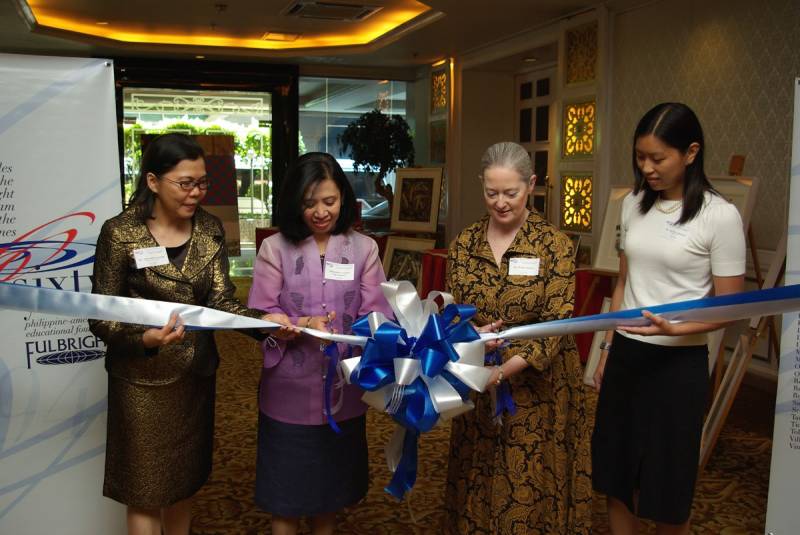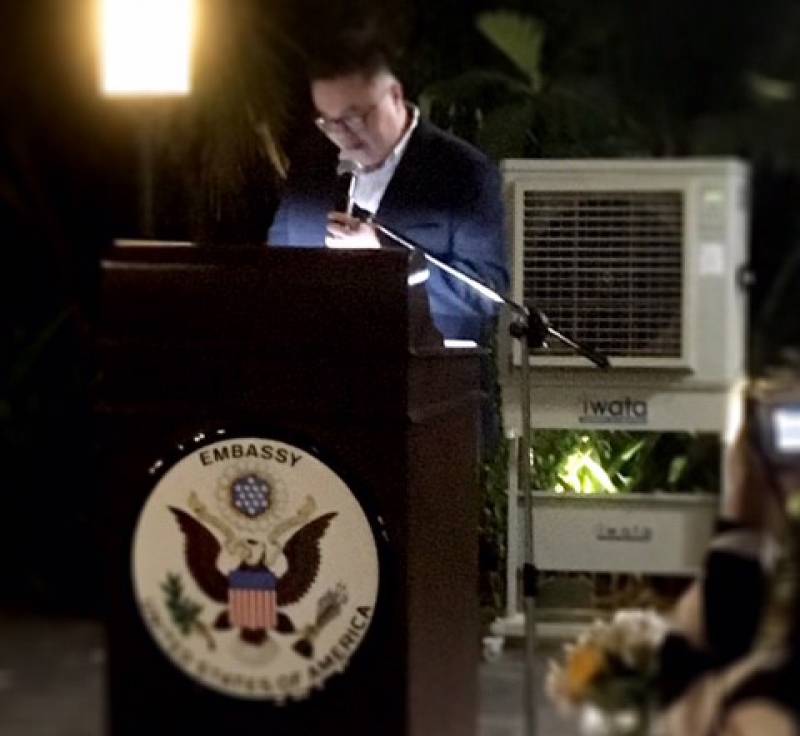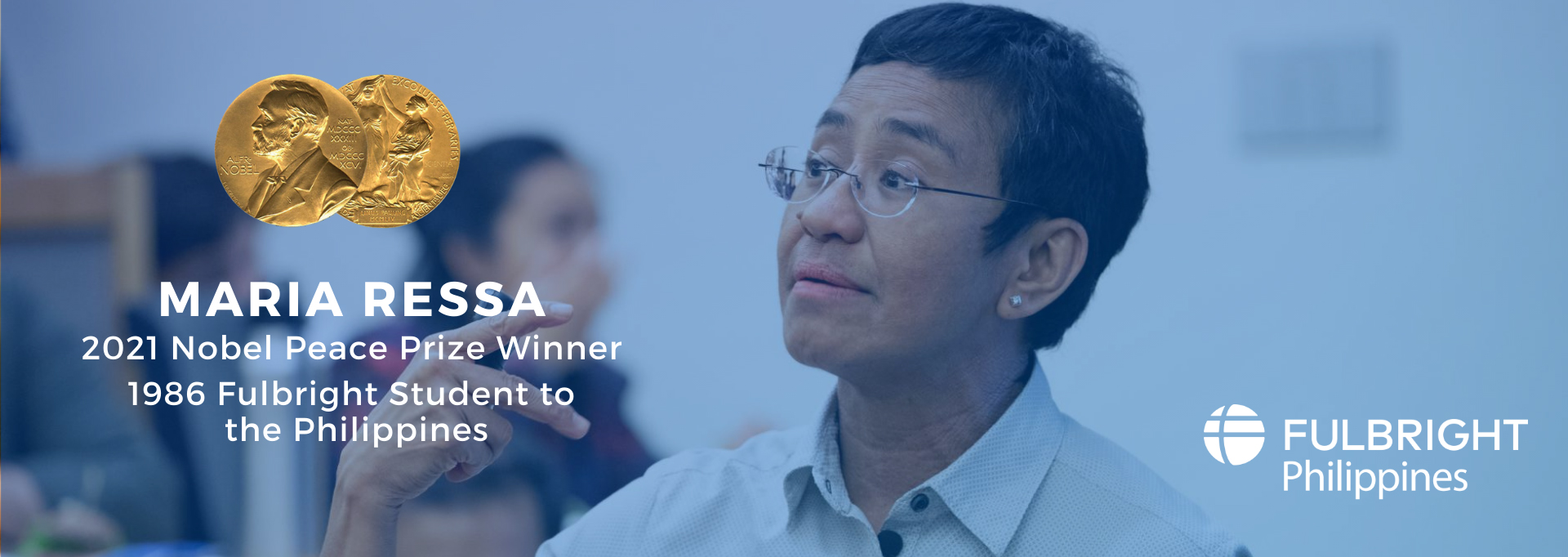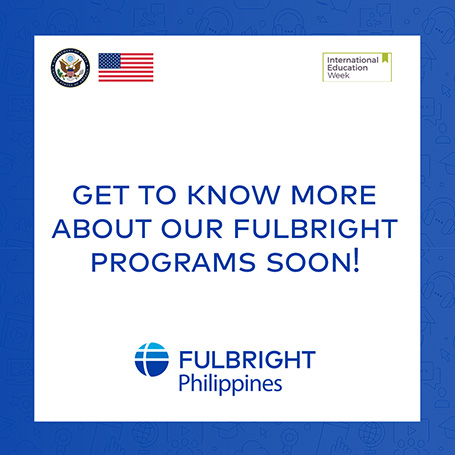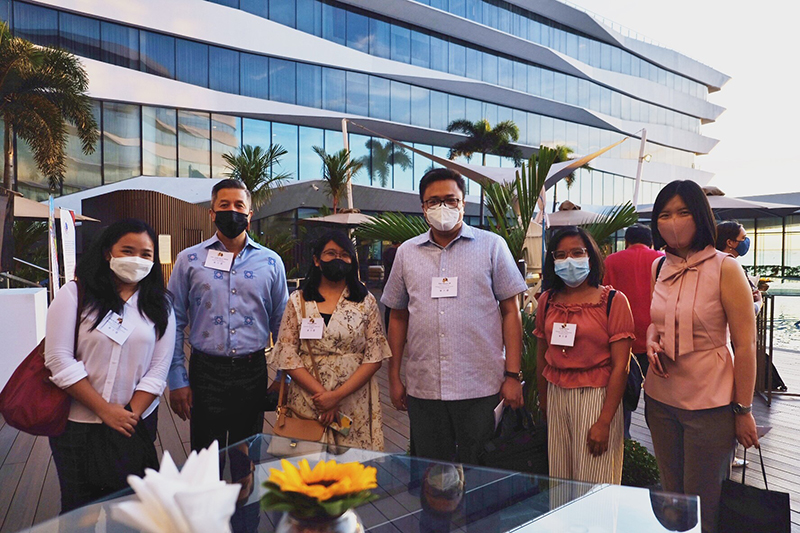Michael Gonzalez - The Integrity and Integrality of Indigenous Weaving
“The Fulbright research experience re-connected and re-directed my research, outside the classroom, to essential questions of how culture and development in societies with history like the Philippines is articulated in the work that people do, in this case, with indigenous weaving. Much work is needed in discovering its ontology and frame it within the discipline of anthropology. Working with local NGOs, I was able to develop a network of producers and weavers throughout the main weaving centers of the Philippines—Ilokos, Visayas, and Mindanao, even though the latter was off limits to Fulbright, but I communicated with people in the area for information.”
Upon his return to the U.S., Michael gave lectures and presentations about his research at conferences and with cultural organizations at De Young Museum, UC Berkeley, Stanford University, and Filipino communities in the San Francisco Bay Area and New York. He was also invited by the International Institute of Education (IIE) in San Francisco to sit on a resource panel for in-coming Fulbright Fellows and he is applying for a similar grant to do more in-depth research on the socio-cognitive aspects of handloom weaving and its cultural system along the theory of textile thinking (re: design thinking) as applied to weaving practices. Resultant of this work, Michael helped to found the San Francisco-based The Hinabi Project that promotes public awareness in the San Francisco Bay Area about Philippine indigenous textile arts and weaving communities and he serves as its Research/Education Director.
As he writes in his A Fulbright Journal 2017 blog entry, “Maghahabi: A Theory Of Culture”: “The forming of cloth, whatever fiber material, can only happen by interlacing two strands of fiber at right angles. In weaving parlance, these are warp (vertical) and the weft (horizontal) thread. In weaving cultures they represent social and physical properties, typically, the male and the female, or heaven and earth. Their intersection constructs the wholeness of the world from which unity emerges-–the axis mundi. In her analysis of designs from Mindanao weavers, Dr. Patricia Araneta explains this concept of axis mundi as the point that where the intersection meets, establishes the location of harmony, and of course, unity. In the performance of Kalinga music, the musicians aim for a good, beautiful performance. They call a unified and “harmonious” sound as talimbat, or the interlocking of sounds made by each player, one after the other (five players at least). Only then does the music become mamburo—beautiful. Indeed, the antiphonal and polychordal outcome can be expressed as woven sound.”
A renaissance man, Michael also enjoys travel and is an aficionado of the classic and electric guitar. A son of the renowned writer N.V.M. Gonzalez, National Artist of the Philippines in Literature (1997), he founded the N.V.M. & Narita Gonzalez Writers’ Workshop in 2005, which has conducted writing workshops on campuses throughout California as well as in the Philippines with the goal of fostering literary exchanges between global Filipinos.
Learn more about The Hinabi Project: https://thehinabiproject.org/styled-13/styled-8/ and the N.V.M. & Narita Gonzalez Writers’ Workshop: http://www.nvmgonzalez.org/styled/. Dr. Micheal Gonzalez learning how to extract abaca fiber for weaving.
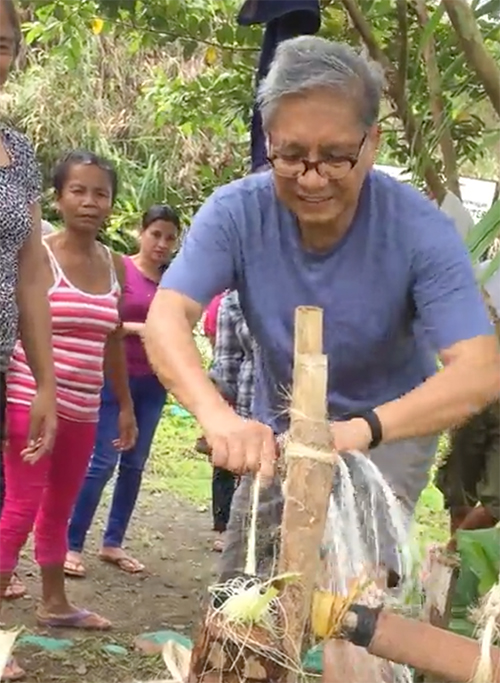
Grace Talusan - A Filipino Writer in the World
She published dispatches from the pandemic in two anthologies, And We Came Outside and Saw the Stars Again and Alone Together, which raised funds for the Book Industry Charitable Foundation. Born in the Philippines and raised in New England, she graduated from Tufts University in Boston and the MFA Program in Writing at UC Irvine in California. Grace taught writing for many years at Tufts University and Grub Street, and is currently the Fannie Hurst Writer-in-Residence at Brandeis University. Grace was the recipient of a U.S. Fulbright Fellowship to the Philippines in 2015. Although she left the Philippines as a toddler and grew up in New England, where there was a small community of Filipino immigrants, she had always wanted to spend time in the country where she was born.
“I wanted to breathe the air, eat the food, and live and work in the Philippines so that I could imagine what my life might have been like if we had not left. The Fulbright was the only way that I could imagine making this dream happen. Many people say they want to live abroad or try living in another country and I feel so lucky that I was able to experience that. I knew it would be life changing and it was."
Grace lived and worked in Manila (specifically, Bonifacio Global City or “BGC”) in order to be in an area where there were a lot of business processing outsourcing centers. She interviewed call center workers who worked in the industry for her project entitled “Sunshine Makers: Narratives of U.S. and Filipino Workers in the ‘Sunshine Industry’ of Call Centers and Business Process Outsourcing.” Her husband came to the Philippines with her and they had the habit of going to the Legaspi Sunday Market in Makati in Metro Manila every week for barako coffee and pan de sal (strong local coffee and fresh-baked buns).
“We'd have conversations with many people and eventually some of these people became friends and before we knew it, it was time for lunch. We'd spend hours sitting at a table and more people would drop by and we'd go back to vendors for more food. Those were some of my favorite times. We met all kinds of people--writers, artisans, farmers, actors, and even distant relatives who wanted to connect. We had wonderful conversations and even met the woman who founded the market, Mara Pardo de Tavera. I often made plans with people at the market on Sundays and ended up on all kinds of adventures that week.”
Grace sees her Fulbright experience as an important turning point that enabled her to have profound, rich experiences that she wrote about in her first book and gave her the time and resources to devote herself to writing her memoir. A lot of the thoughts and feelings she had about her experience are in that book.
“So many good things and unexpected riches have come from those months abroad and I imagine these will reverberate for the rest of my life. I became closer to family members—some had never had the opportunity to travel outside of the Philippines, so I only knew them through photos. It's been several years and some of those people are gone now and I'm grateful that I got to know them before it was too late. I've stayed in contact with many of my friends there and last fall collaborated with two Filipino-based journalists, Howie Severino and Xyza Cruz Bacani, with a US-based arts organizer, Barbara Parayno of PAWA Inc (Philippine Artists and Writers Association), for an online discussion around a short story I published about Overseas Filipino Workers.The Fulbright was a profound gift of time and resources for me to live as a writer in my motherland. I am so grateful for that and try to live my life in a way that honors that gift.” Watch the online PAWA discussion about Grace’s short story here: https://youtu.be/urhltMA_cGg. Learn more about Grace at her website: https://www.gracetalusan.com/.
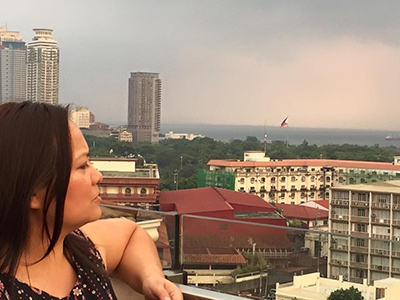
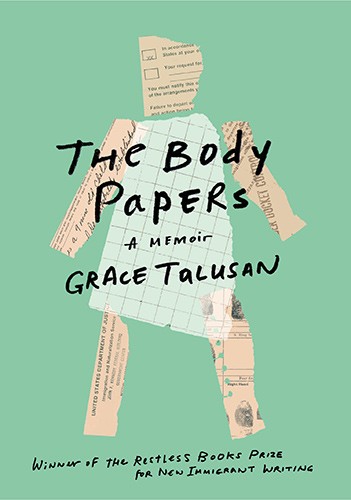
Fulbright Day: Philippines - July 3
 As the global Fulbright Program celebrates its 75th anniversary this year, Fulbright Philippines celebrates 73 years of cross cultural and educational exchanges with an eye toward our own 75th anniversary in 2023 as the oldest continuous Fulbright Program in the world. On July 3, 2021, Fulbright Philippines celebrates Philippine Republic Day (in Tagalog/Filipino: Araw ng Republikang Pilipino), also known as Philippine–American Friendship Day, an annual commemoration in the Philippines, with scholar features, gratitude to prominent Fulbrighter alums on the frontlines and in higher education, and kicks off an evolving photo gallery of Fulbright Philippines over the years.
As the global Fulbright Program celebrates its 75th anniversary this year, Fulbright Philippines celebrates 73 years of cross cultural and educational exchanges with an eye toward our own 75th anniversary in 2023 as the oldest continuous Fulbright Program in the world. On July 3, 2021, Fulbright Philippines celebrates Philippine Republic Day (in Tagalog/Filipino: Araw ng Republikang Pilipino), also known as Philippine–American Friendship Day, an annual commemoration in the Philippines, with scholar features, gratitude to prominent Fulbrighter alums on the frontlines and in higher education, and kicks off an evolving photo gallery of Fulbright Philippines over the years.
This article is divided into the following sections:
- Scholar Features
- Gratitude to prominent Fulbrighter alums on the frontlines
- Gratitude to prominent Fulbrighter alums in higher education
- Evolving photo gallery of Fulbright Philippines over the years
Scholar Features
Fulbright Philippines Alumni Feature #1: Grace Talusan - A Filipino Writer in the World
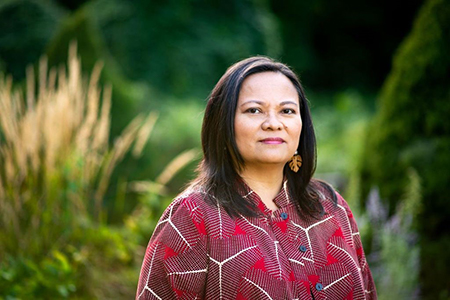
Grace Talusan's recently-published memoir, The Body Papers (2019), would not exist without her Fulbright experience. The memoir won the Restless Books Prize for New Immigrant Writing resulting in its publication, then went on to win the Massachusetts Book Award in nonfiction and was a New York Times Editors' Choice selection. A short research trip from the Philippines to Hong Kong informed a revision of her short story, "The Book of Life and Death," which was chosen as the Boston Book Festival's 2020 One City One Story and was translated into several languages, including Tagalog.
Read more about this remarkable Filipino Writer in the World! >>
Fulbright Philippines Alumni Feature #2: Michael Gonzalez - The Integrity and Integrality of Indigenous Weaving
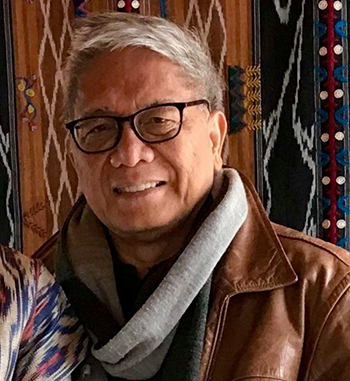 Dr. Michael M. Gonzalez was encouraged to apply for a U.S. Fulbright Fellowship to the Philippines in 2017 by faculty members as he worked through his dissertation. A product of an international education, Michael graduated from the University of the Philippines’ History Department, holds a masters degree in Social Anthropology from Sydney, Australia, and a U.S. doctorate in Education. An adjunct faculty of the City College San Francisco’s Philippine Studies Department, Michael teaches courses in Philippine Society and Culture Through Film, The Filipino Family, and Philippine Anthropology, where he enjoys challenging the misperceptions of American students about Philippine society. During his Fulbright experience, he conducted research on indigenous weaving in the Philippines and investigated the impact of globalization in the life cycle/value chain of handwoven textiles for his project, “Fabrics for the Future: A Preliminary Field Research on The Challenge of Glocalization, Culture and Product Life Cycle in Selected Artisanal Weaving Communities in the 21st c. Philippines.”
Dr. Michael M. Gonzalez was encouraged to apply for a U.S. Fulbright Fellowship to the Philippines in 2017 by faculty members as he worked through his dissertation. A product of an international education, Michael graduated from the University of the Philippines’ History Department, holds a masters degree in Social Anthropology from Sydney, Australia, and a U.S. doctorate in Education. An adjunct faculty of the City College San Francisco’s Philippine Studies Department, Michael teaches courses in Philippine Society and Culture Through Film, The Filipino Family, and Philippine Anthropology, where he enjoys challenging the misperceptions of American students about Philippine society. During his Fulbright experience, he conducted research on indigenous weaving in the Philippines and investigated the impact of globalization in the life cycle/value chain of handwoven textiles for his project, “Fabrics for the Future: A Preliminary Field Research on The Challenge of Glocalization, Culture and Product Life Cycle in Selected Artisanal Weaving Communities in the 21st c. Philippines.”
Read more about Dr. Michael Gonzales an amazing Fulbrighter! >>
Gratitude to prominent Fulbrighter alums on the frontlines
Thank you Fulbrighter!
As part of Fulbright75, PAEF shows gratitude to several Philippine Fulbrighters fighting on the frontlines of a global pandemic, including Dr. Ronald Law, Chief, Preparedness Division, Emergency Management Bureau, Department of Health-Philippines, and many of our notable alumni that serve leading roles transforming Philippine higher education, such as CHED Chairperson Dr. Julian Prospero “Popoy” De Vera III.
Fulbright Philippines Alumni Lead on the Frontlines of a Global Pandemic
As COVID-19 continues into a second year of worldwide existence, even with the advent of a flurry of vaccines and inoculations, its spread and reach remain comprehensive. International exchange and cooperation have proven vital in the fight for human health and safe living. U.S. Ambassador to the Philippines Sung Y. Kim emphasized the necessity and power of this crucial partnership around COVID-19 last year in “Our Enduring Partnership: Working Together To Defeat COVID-19”: https://ph.usembassy.gov/our-enduring-partnership-working-together-to-defeat-covid-19/. USPhilippines Society followed up with a more expanded look at all of the ways Filipino Fulbrighters have contributed to ongoing efforts in “Weekly Issues: US-Philippines Exchange Alumni and the COVID-19 Response”: https://www.usphsociety.org/2020/05/28/weekly-issues-us-philippines-exchange-alumni-and-the-covid-19-response/. More recently, a Q&A with Dr. Ronald Law, 2019 Fulbright Visiting Scholar from the Philippines, was featured this year on the Global Fulbright blog in “Fulbright Impact in the Field: Combating COVID-19”: https://cies.org/article/fulbright-impact-field-combating-covid-19. Fulbright Philippines honors all of its scholars working on the front line in this global battle to #FlattenTheCurve. Thank you to the following for your work and commitment to healthcare research amid the #COVID19 pandemic:
- Dr. Shirley C. Agrupis, President, Mariano Marcos State University, Fulbright Visiting Researcher 2011 - Kansas State University
- Dr. Vikki de los Reyes, Medical Specialist III, Epidemiology Bureau, Department of Health - Philippines, Humphrey 2018 - Emory University
- Dr. Mariano Hembra, Chief of Hospital II, Don Jose Monfort Medical Center, Humphrey 2003 - Johns Hopkins University
- PDr. Beverly Lorraine Ho, Special Assistant to the Secretary for UHC, Health Research Division, Department of Health-Philippines, Fulbright Foreign Student Program 2014 - Harvard University
- Dr. Mario Jiz, Head, Immunology Department/Chief Science Research Specialist, Research Institute for Tropical Medicine, Fulbright Foreign Student Program 2005 - Brown University
- Dr. Ronald Law, Chief, Preparedness Division, Emergency Management Bureau, Department of Health-Philippines, Fulbright US - ASEAN 2019 - University of Washington
- Dr. Neil Melencion, Senior Science Research Specialist, Philippine Coconut Authority, Zamboanga Research Center, FPASP PHD 2002 - Mississippi State University
- Dr. Maria Lourdes Otayza, Medical Center Chief II, Department of Health-Marian Marcos Memorial Hospital and Medical Center, Humphrey 2007 - Tulane University
If you know a #Fulbrighter who is contributing to the fight against #Covid19, please send us a message at This email address is being protected from spambots. You need JavaScript enabled to view it.. #FulbrightPH #Covid19PH #ThankYouFulbrighter
Gratitude to prominent Fulbrighter alums in higher education
“Notable Alumni Leaders in Higher Education”
The Fulbright Program has empowered a bevy of dedicated and talented students, scholars, teachers, artists, and professionals across diverse arenas of work to study, teach and conduct research, exchange ideas, and collaborate around complex global issues to find impactful solutions. A number of them have leveraged their Fulbright experiences into greater leadership in higher education in the Philippines, and we thank them for serving their nation as stewards of outstanding scholarship and lifetime learning of, by, and for their country’s citizens.
Evolving photo gallery of Fulbright Philippines over the years
“Fulbright Philippines Over the Decades” — An Evolving Photo Gallery of Excellence
On March 23, 1948, the Philippine-American Educational Foundation (PAEF) was established as a Fulbright Commission. Over seven decades, we have worked with over 3,000 Filipino scholars and researchers and over 1,000 American scholars. Our alumni community includes at least one National Artist of the Philippines, several high-ranking government officials, global intellectuals in universities across the world, justice-minded activists and cultural workers, successful published authors and poets in both the U.S. and Philippines, legal scholars and policy practitioners, innovative scientists, community-builders and educators, and an award-winning artist that showed at the prestigious Venice Biennale.
Fulbright Philippines launches an evolving photo gallery of “Fulbright Philippines Over the Decades” to emphasize PAEF as a Fulbright Commission with continuing partnerships that are integral to their ongoing work as well as to illuminate our talented alumni making their marks in diverse fields. If you are a Fulbright alum, especially pre-1990s, who has photos to perhaps contribute to the digital gallery, please

